Astronomy
-
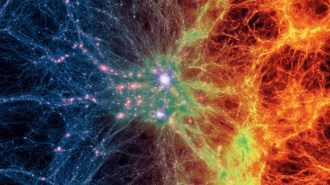 Astronomy
AstronomyNearly half of the universe’s ordinary matter was uncharted, until now
Two studies fill in gaps about the cosmos’s ordinary matter. One maps it all, even the “missing matter.” The other details one of its hiding spots.
-
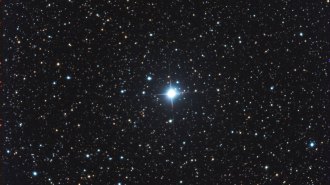 Astronomy
AstronomyA rare chance to see two exploding stars is happening in the southern sky
Exploding stars V462 Lupi and V572 Velorum are best seen from the Southern Hemisphere. One has been spotted from the United States.
-
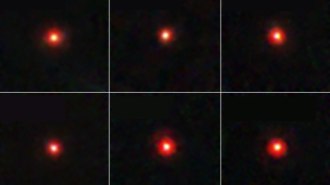 Astronomy
AstronomyMysterious ‘little red dot’ galaxies have a possible origin story
Compact ruddy galaxies seen by the James Webb telescope confound astronomers. Having very little spin at birth may explain the galaxies’ small sizes.
By Ken Croswell -
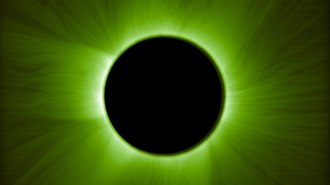 Astronomy
AstronomyTwo spacecraft created their first images of an artificial solar eclipse
The Proba-3 spacecraft succeed at creating solar eclipses, kicking off a two-year mission to study the sun’s mysterious outer atmosphere, the corona.
-
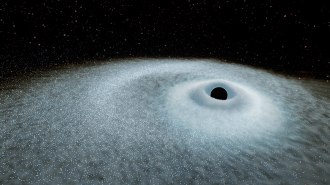 Astronomy
AstronomyBlack hole–shredded megastars power a new class of cosmic explosions
These explosions, called extreme nuclear transients, shine for longer than typical supernovas and get 30 to 1,000 times as bright.
-
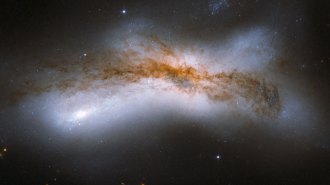 Astronomy
AstronomyA dwarf galaxy just might upend the Milky Way’s predicted demise
The Milky Way may merge with the Large Magellanic Cloud in 2 billion years, not Andromeda, contrary to previous findings.
By Nikk Ogasa -
 Astronomy
AstronomyA gas cloud 5,500 times as massive as the sun lurks nearby
At 300 light-years away, the interstellar cloud is the closest of its kind ever found to Earth and the largest apparent single structure in the sky.
-
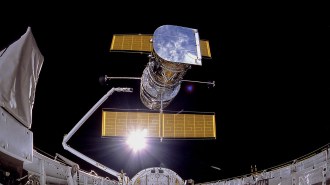 Space
SpaceSee how the Hubble Space Telescope is still revolutionizing astronomy
Hubble is still going strong 35 years after it was launched into space. Celebrate its anniversary with some out-of-this-world images.
-
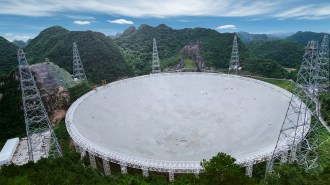 Astronomy
AstronomyA gas clump in the Milky Way’s neighborhood might be a ‘dark galaxy’
A blob of gas seen outside the Milky Way could be a type of starless, dark matter–dominated galaxy. Some scientists are skeptical.
-
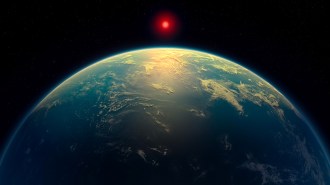 Astronomy
AstronomyA claimed hint of alien life whips up spirited debate
Astronomers have a lot of thoughts about the latest paper claiming we’ve found the strongest hints of alien life yet on the distant planet K2 18b.
-
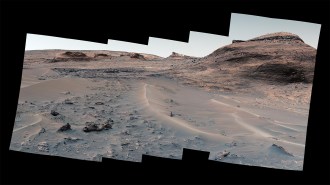 Space
SpaceA NASA rover finally found Mars’ missing carbon
The Curiosity rover identified hidden caches of the mineral siderite, which could help explain why Mars lost its habitable climate.
-
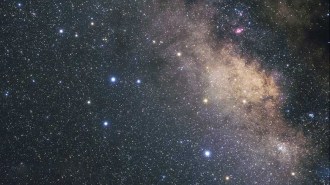 Astronomy
AstronomyYes, there really is a black hole on the loose in Sagittarius
Astronomers now agree: They’ve spotted the first isolated stellar-mass black hole ever seen.
By Ken Croswell